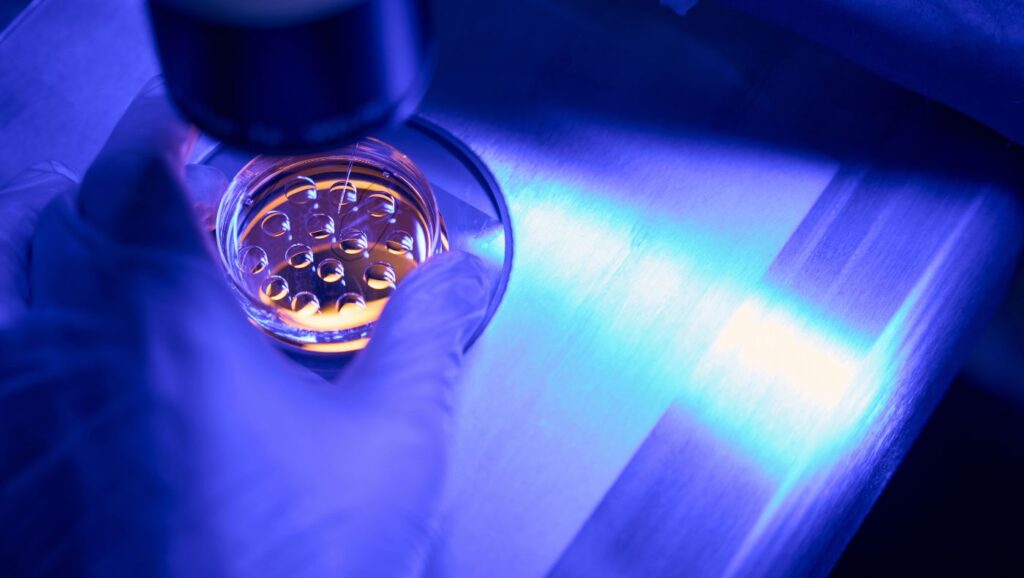
Understanding ICSI: Procedure and Success Rates at Ovum IVF, Bangalore
Intracytoplasmic Sperm Injection (ICSI) stands as a revolutionary ART technology which has brought transformative changes to infertility treatment. ICSI represents a specific approach to IVF in which medical staff insert a single sperm directly inside an egg for successful fertilization. ICSI at Ovum IVF provides hope to couples dealing with male infertility together with other reproductive challenges.
What is ICSI?
The fertility technique ICSI operates in laboratory settings to assist patients with treatment-resistant cases of infertility. ICSI benefits couples in situations involving these challenges:
- Severe male infertility (low sperm count, poor motility, abnormal morphology)
- Previous IVF failures
- Unexplained infertility
- Cases requiring sperm retrieval via surgical techniques (TESA/PESA)
The ICSI Procedure at Ovum IVF
At Ovum IVF, the ICSI procedure is carried out with precision and advanced technology to maximize success rates. The process includes the following steps:
1. Ovarian Stimulation & Egg Retrieval
- The female partner undergoes ovarian stimulation using fertility medications to produce multiple eggs.
- The eggs are retrieved through a minor surgical procedure called follicular aspiration.
2. Sperm Collection & Preparation
- A sperm sample is collected from the male partner.
- If required, sperm may be retrieved surgically in cases of azoospermia (absence of sperm in semen).
- The healthiest and most motile sperm are selected using advanced sperm preparation techniques.
3. Microinjection of Sperm into the Egg
- A single sperm is injected directly into the egg using a fine glass needle under a high-powered microscope.
- This bypasses the need for sperm to penetrate the egg naturally, increasing the chances of fertilization.
4. Embryo Culture & Development
- The fertilized eggs (embryos) are cultured in a specialized incubator.
- Embryo growth is monitored over several days to select the healthiest embryos for transfer.
5. Embryo Transfer
- A selected embryo is transferred into the woman’s uterus.
- The procedure is painless and requires no anesthesia.
6. Pregnancy Test & Follow-up
- A pregnancy test is conducted two weeks after the embryo transfer to confirm success.
- Further monitoring is done to ensure a healthy pregnancy.
Success Rates of ICSI at Ovum IVF
The achievement of ICSI treatment relies on three main factors, including the woman’s age along with sperm and egg quality and specialist’s technical skill. The success rates at Ovum IVF reach their peak because of their innovative technologies and individualized treatment strategies.
- Overall ICSI success rate: 50-80% fertilization rate
- Pregnancy rate per cycle: 40-60%, depending on individual factors
- Live birth rate: Varies based on maternal age (higher success in women under 35)
Advantages of ICSI at Ovum IVF
- High Fertilization Rate: Overcomes severe male infertility cases effectively.
- Increased Success in Previous IVF Failures: This offers a higher chance of conception for couples with failed IVF attempts.
- Ideal for Sperm Retrieval Cases: Works well for men with azoospermia who need surgical sperm extraction.
- Reduces Fertilization Uncertainty: Ensures sperm-egg interaction, bypassing natural barriers to fertilization.
When Should You Consider ICSI?
Couples need to consider ICSI when they face any of these conditions:
- Male infertility due to low sperm count or motility issues
- Insufficient fertilization of embryos has occurred during prior IVF treatments.
- Need for surgical sperm retrieval
- Unexplained infertility with repeated IVF failures
Conclusion
Infertile couples benefit from the revolutionary biological method ICSI because it boosts their pregnancy prospects significantly. Ovum IVF delivers its procedures utilizing state-of-the-art equipment together with fertility specialists who perform the procedures with maximal accuracy. The successful ICSI procedure at Ovum IVF provides infertile couples with promising possibilities through its advanced approaches and high achievement rates.
FAQs
1. Is ICSI more successful than conventional IVF?
Yes, the use of ICSI proves especially effective for male infertility since it achieves direct sperm injections that lead to successful fertilization.
2. How long does the ICSI procedure take?
The process, including ovarian stimulation, retrieval, fertilization, and transfer, takes about 4-6 weeks per cycle.
3. Are there any risks with ICSI?
ICSI brings minimal risks to patients, although it may slightly raise possibilities of genetic disorders and second-trimester pregnancies.
4. What is the cost of ICSI at Ovum IVF?
Treatment costs fluctuate based on how the clinic builds patient plans. The complete pricing information can be obtained by consulting with Ovum IVF.
5. How soon can I try another ICSI cycle if the first one fails?
Fertility specialists determine when to start another cycle but most patients can attempt a second cycle within a timespan between one to three months.